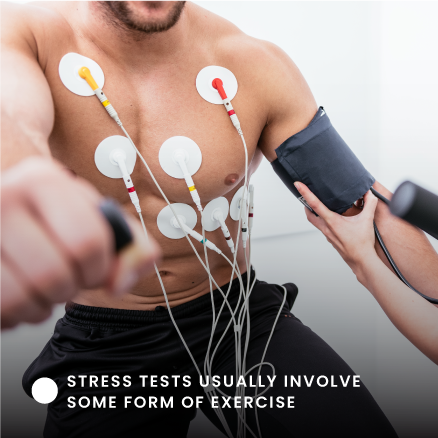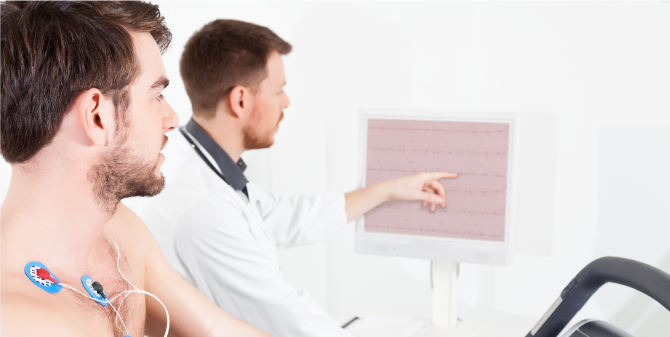SERVICES
Stress Testing
CALL TO BOOK AN APPOINTMENT
813-870-1747

The test can be performed with EKG monitoring alone but is often performed with imaging (MRI, Nuclear, Echo) for improved diagnostic accuracy.
How Are Stress Tests Done?
The Primary Purpose
of This Test is To:
- Determine your likelihood of having coronary artery disease
- Evaluate for exercise-induced relaxation abnormalities
- Evaluate for exercise-induced arrhythmias
- Evaluate the effectiveness of your cardiac treatment plan
- Evaluate the function of your heart valves
- Help you develop a safe exercise program
Does A Stress Test Carry Any Risks?
As with many medical tests and procedures, there is some risk, but exercise stress tests are generally safe, with few complications.
- Low Blood Pressure: Experienced during or immediately after testing causing dizziness
- Arrhythmias (irregular heartbeats): May emerge during the exercise stress test
- Myocardial Infarction (heart attack): Generally a risk for those with advanced heart conditions
What Should I Expect From
an Exercise Stress Test?

Preparations
Dr. Morales will advise you about other preparations, which may include not eating, drinking, or smoking for 2 hours or longer before the test.
You may also be asked to avoid caffeine or some medications for 24 hours before the test, if they may influence results.
During Testing
The various monitoring devices, such as electrocardiogram electrodes and blood pressure cuff, are put in place. Depending on the test, a breathing tube may be used.
The test starts with low intensity, building to increase the heart rate to meet the test target or until contrary symptoms result.
After
If you don't happen to see yours listed, please call our office to speak with one of our knowledgable staff members.




